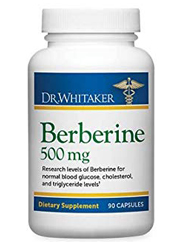Nature Knows and Psionic Success
God provides
Pycnogenol Shown to Improve Symptoms of Mild Cognitive Impairment
A new peer-reviewed study has shown that daily supplementation with the natural antioxidant Pycnogenol can be instrumental in improving the symptoms of Mild Cognitive Impairment (MCI)—a potential risk factor for early onset dementia and other degenerative cognitive conditions. The study, published in Minerva Medica , tested 87 men between the ages of 55 and 70 who showed signs of MCI. Researchers administered a Mini-Mental State Examination (MMSE) 30-point questionnaire to determine the level of cognitive impairment for each individual. Participants supplemented with 150 mg (three 50 mg capsules) of Pycnogenol daily for eight weeks and their MMSE scores were re-evaluated at the end of the study. All study participants followed a standard management routine including healthy sleep habits, regular exercise, and low sodium and low sugar meals. Results showed that along with these standard management practices, study participants who supplemented with Pycnogenol had an 18% improvement of their MMSE scores, including improvements in the following areas: Significant enhancement of ability to remember friends and family (31.3% improvement with Pycnogenol vs. 0% improvement control) Improvement of remembering where things are (39.4% improvement with Pycnogenol vs. 6.5% improvement control group) Increase of ability to learn new gadgets and technology (24.1% improvement with Pycnogenol vs. 3.3% improvement control) Greater ability to manage money and finances (39.4% improvement with Pycnogenol vs. 12.5% improvement control) Significant improvement of ability to deal with people (19.4% improvement with Pycnogenol vs. 7.6% control) In addition, researchers found that the participants who supplemented with Pycnogenol also experienced a 16% reduction in oxidative stress. Building on a Body of Cognitive Health Research This new study builds upon previous research supporting the benefits of Pycnogenol for cognitive health improvement. A study conducted in 2015 and published in the Journal of Neurosurgical Sciences showed that Baby Boomers (ages 55+) experienced increased […]
Psychobiotics: Intestinal bacteria that improve your mental health
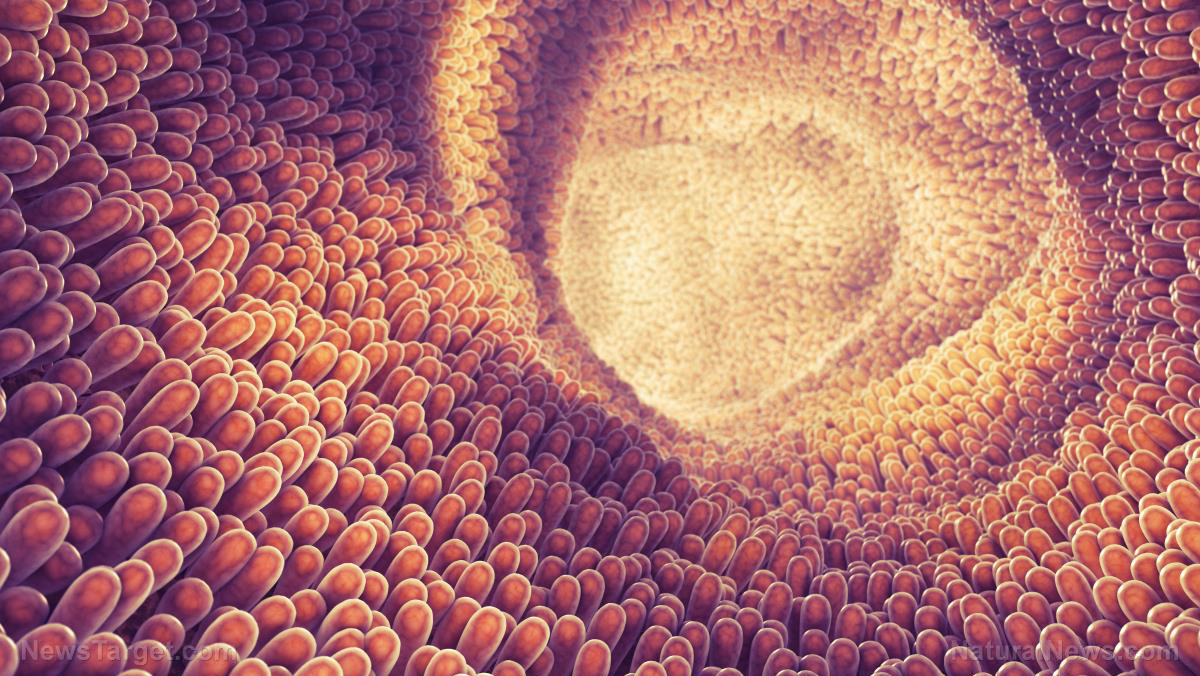
( Natural News ) Here’s a quick question: how much do the bacteria in your gut weigh? The answer is three pounds, although the number can go up to more than four. That’s a lot of bacteria! Given this figure, it isn’t so surprising that your gut microbiome, the bacteria population in your intestines, can have a considerable impact on your health. Some experts have even found certain bacterial species, aptly termed psychobiotics, that can affect the workings of your brain . In your body, particular cells perform specific functions. Neurons, for example, make up the different parts of the nervous system, including your brain and nerves. You’d be surprised, therefore, to find that your intestines also contain neurons – about 100 million of them, in fact. That’s more neurons than even the spinal cord is made of. This collection of neurons in your gut enable you to “feel” the inside of your body. It has been called the “second brain” or the “backup brain.” Even more interesting are findings that certain bacterial species can hook up to this secondary brain and affect how you think, feel, and react to stress and your surroundings. Your population of probiotics or gut bacteria is unique from that of other people – as unique as your fingerprint, actually. Estimates of their number range from a trillion to tens of trillions of individuals belonging to any of the thousands of species currently known. Ideally, about 85 percent of them are “good,” and 15 percent are “bad.” Good bacteria help with digestion, breaking down toxins, and other functions that make them essential to good health and the prevention of conditions like obesity, diabetes, neurodegenerative disorders, and heart disease, among others. Mother Nature’s micronutrient secret : Organic Broccoli Sprout Capsules now available, delivering 280mg of […]
How to Keep Alzheimer’s Disease Out of Your Future
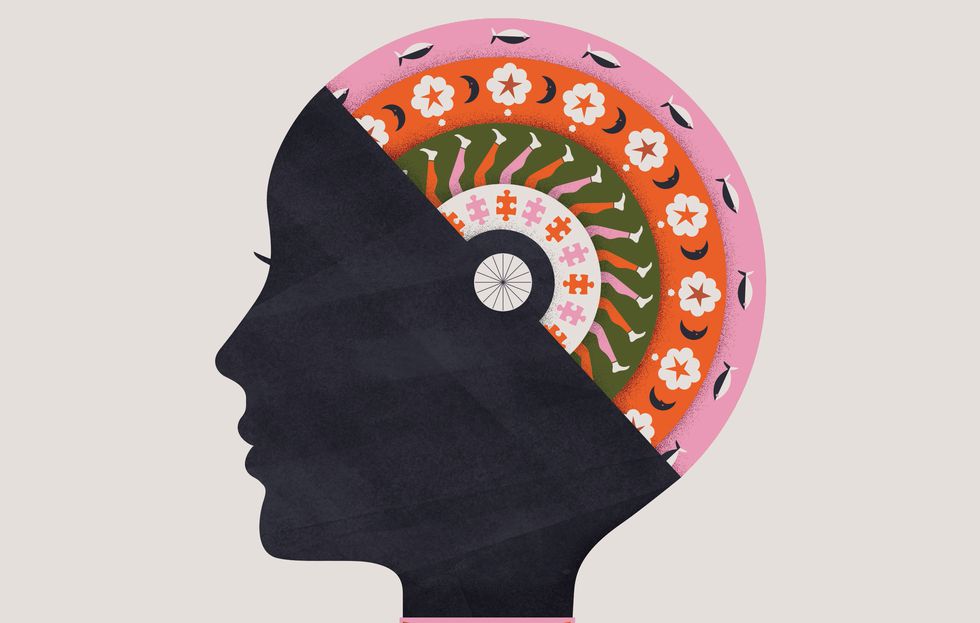
alzheimer’s prevention how to increase brain power If you were taught that you’re born with all the brain cells you’ll ever get and it’s all downhill from there, it’s time for a rethink. Mounting research suggests you can improve your brain no matter what your age, making it stronger now and protecting it for the long term. In fact, while surveys have found that 60 percent of Americans consider Alzheimer’s disease a natural part of getting older, scientists say the opposite. “We’re finally able to use the terms ‘Alzheimer’s disease’ and ‘prevention’ in the same sentence,” says Richard Isaacson, MD, director of the Alzheimer’s Prevention Clinic at Weill Cornell Medicine. And the same may be true for other forms of cognitive decline. The best time to start your brain-improvement plan: now. Alzheimer’s-related brain changes that can lead to cognitive impairment—and prevent the lightning-fast thinking you’re used to—start as early as your 30s or 40s. Yet whether you’re younger or older than that, making good choices in what you do, eat, and think can make a big difference in how your gray matter works later on. “There’s not an age that’s too early or too late to think about better brain health,” says Dr. Isaacson. Your brain’s four favorite life preservers include some that probably look familiar: The activity, foods, and sleep your heart loves also keep your brain in shape. Add some quality thinking time to that list, and your ideal plan looks like this: Brain Booster #1: Walk, dance, play, move Getting your body into action helps clear your brain of a protein fragment called amyloid, which is believed to accumulate in and “gunk up” the brains of people with Alzheimer’s. “There’s no drug available that can lower amyloid,” says Dr. Isaacson. “The only thing we know that […]
Bipolar disorder may be a side-effect of a nutritional deficiency – correcting your diet can help beat it

( Natural News ) Bipolar disorder, also referred to as “manic depression,” is a brain disorder that affects millions of people. For many, bipolar disorder can be hard to cope with — but research has shown that nutritional supplements can help keep symptoms under control, naturally. Scientists believe that people genetically predisposed to bipolar may be susceptible to a nutrient deficiency, which triggers and worsens the symptoms of bipolar. By supplementing with micronutrients , these symptoms can be addressed. Good nutrition is necessary for your well-being across the board, including your mental health. Nutritional psychiatry is an emerging field, and even conventional medical professionals are beginning to recognize that your brain needs the right fuel to function at its best. Bipolar disorder and nutritional supplements In a study published in 2001, researchers found that a 36-ingredient nutritional supplement was effective at reducing the symptoms of bipolar, including mania, depressed mood and psychosis. The effect was noticed in patients who were taking medication, as well as those who were not. All told, 36 patients were featured in the research. As sources explain , the team believed the supplement worked ” by correcting inborn metabolic errors that result in bipolar-like symptoms in genetically predisposed individuals when certain micronutrients are deficient in the diet.” In 2010, a case study published in CNS Spectrums featured a patient with bipolar and ADHD who was successfully treated with a micronutrient supplement. 100% organic essential oil sets now available for your home and personal care, including Rosemary, Oregano, Eucalyptus, Tea Tree, Clary Sage and more, all 100% organic and laboratory tested for safety. A multitude of uses, from stress reduction to topical first aid. See the complete listing here , and help support this news site. There is much research to support the brain-boosting effects of […]
The Simple Brain Fog Cure Green Smoothie
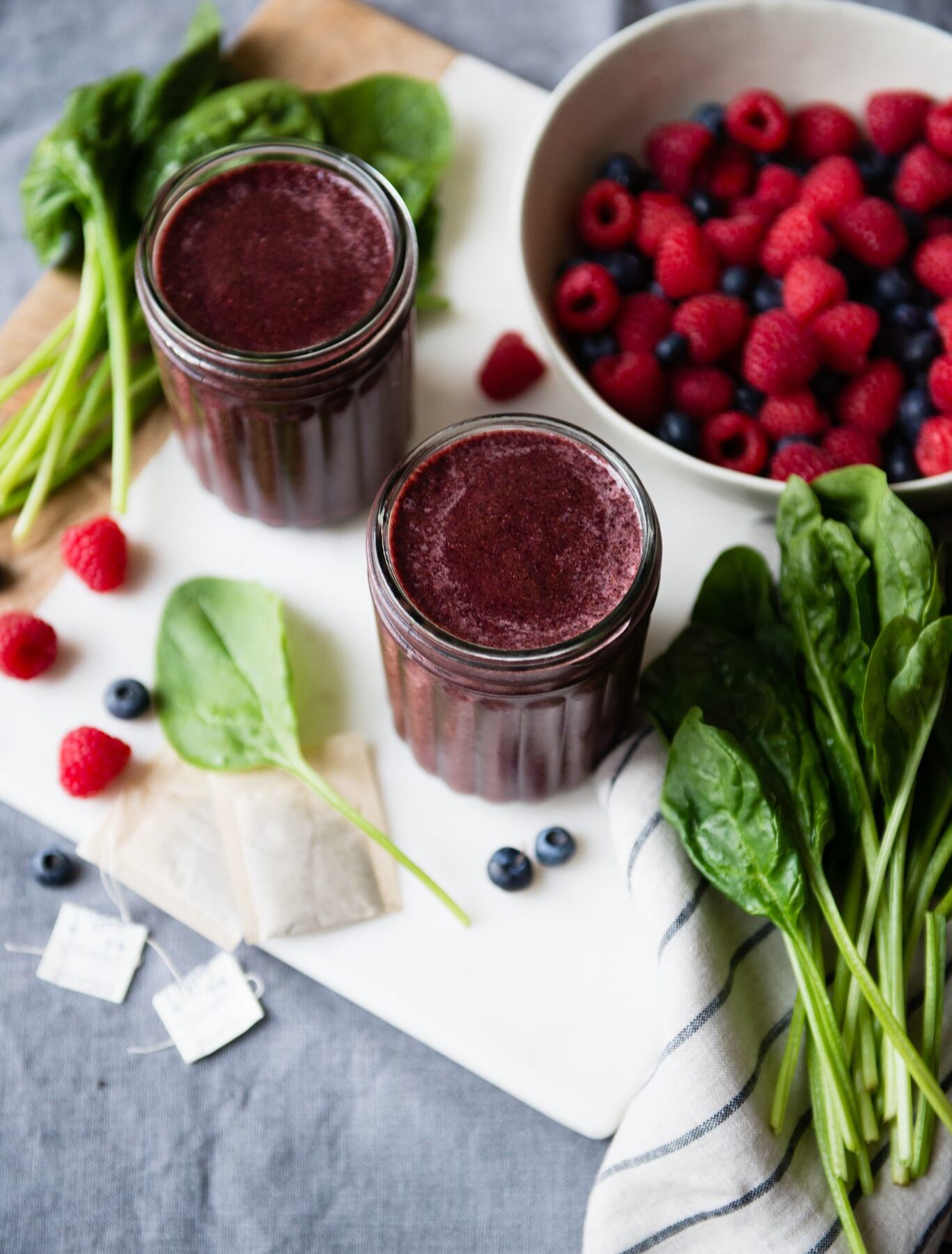
This simple brain fog cure smoothie recipe is easy to make, will help with mental clarity and give you a natural boost of energy. Now and then I’m faced with a day where I find it hard to concentrate. Mental fatigue has finally caught up with me and I’m on the hunt for a brain fog cure. Whether it’s a tough week in the office followed by a weekend gymnastics tournament for Clare or just an afternoon that needs to be productive, I know I could use an extra boost to stay sharp. The go-to food for these cases are blueberries and raspberries. Honestly, they should just be called Brain Berries. When we’re young, our brains rarely have trouble keeping up. That’s because a young body produces a ton of microglia, a cell responsible for cleaning up debris that pollutes the brain. This debris slows down brain function, clouding our focus and making it difficult to concentrate. I don’t know about you, but I don’t have time for that. That’s where berries come in. As we age, our body doesn’t produce as much microglia as it did when we were young. That means it is easier for junk to build up in our brain. This leads to decreased memory and trouble staying focused. Brain cells can become damaged, not only in the right now, but for the long run as well. Today, it may cause you to forget where you left your keys, but years from now it may lead to more serious mental diseases like Alzheimer’s. Top brain fog cure ingredients you should be blending Blueberries and raspberries fight on the front lines against the oxidative stress and free radical damage that cause memory malfunctions. They keep microglia cells working properly, ensuring your brain is working properly too. […]
New Research Shows Natural Antioxidant Pycnogenol® Effective in Improving Symptoms of Mild Cognitive Impairment

In published research, the French maritime pine bark extract reduced MCI symptoms associated with early onset dementia HOBOKEN, N.J., Aug. 2, 2018 /PRNewswire/ — A new peer-reviewed study shows that daily supplementation with the natural super-antioxidant Pycnogenol ® (pic-noj-en-all) can be instrumental in improving the symptoms of Mild Cognitive Impairment (MCI) – a potential risk factor for early onset dementia and other degenerative cognitive conditions. "This is potentially breakthrough research for millions. Mild Cognitive Impairment hits general memory and reasoning. Those suffering from MCI may have more difficulty remembering where they put their car keys, recalling names or learning new skills. In many cases, it’s a precursor for dementia," said Medical Director of NYU Langone Center for Men’s Health, Dr. Steven Lamm. "Daily supplementation with Pycnogenol ® made a difference for those struggling with this frustrating and frightening condition," said Dr. Lamm. A Natural Option to Boost Cognitive Function The study, published in Minerva Medica , tested 87 men between the ages of 55 and 75 who showed signs of MCI. Researchers administered a Mini-Mental State Examination (MMSE) 30-point questionnaire to determine the level of cognitive impairment for each individual. Participants supplemented with 150mg (three 50mg capsules) of Pycnogenol ® daily for eight weeks and their MMSE scores were re-evaluated at the end of the study. All study participants followed a standard management routine including healthy sleep habits, regular exercise, and low sodium and low sugar meals. Results show that along with these standard management practices, study participants who supplemented with Pycnogenol ® had an 18 percent improvement of their MMSE scores, including improvements in the following areas: Significant enhancement of ability to remember friends and family (31.3 percent improvement with Pycnogenol ® vs. 0 percent improvement control) Improvement of remembering where things are (39.4 percent improvement with Pycnogenol […]
Brain Health Supplements Market Revenue and Value Chain 2015-2021

New York, NY — ( SBWIRE ) — 08/02/2018 — Supplements includes those products which are used to improve and enhance and any kind of deficiency in the human body. Supplements are offered to the consumers in the form of pills, capsules, softgels or in powdered or liquid form. Supplements can be segmented on the basis of type which includes herbal supplements and natural supplements. Furthermore, supplements can be segmented on the basis of application which includes beauty supplements, weight control supplements, dietary supplements, vitamin supplements, energy supplements, health supplements, weight gain supplements, probiotic supplements, memory supplements, high supplements and others. Brain health supplements comprises vitamins and nutritional benefits which helps in reducing stress, increasing concentration level, elevate mood or memory and protect against anxiety, depression and dementia. Today’s hectic lifestyle coupled with mental stress makes brain health supplement a great lifestyle product. Brain health supplements or boosters can be consumed in various forms like tablets, powders, capsules and others. Brain health supplements market can be segmented on the basis of types which includes docosahexaenoic acid (DHA), vitamin D, vitamin B12, antioxidants, vinpocetine, bacopa monnieri and others. Brain health supplements can be further segmented on the basis of distribution channel which includes vitamin and health stores, drugstores, supermarkets, internet and others. Among all these distribution channel sell out of brain health supplements through drugstores is expected to account for the highest market share during the forecast period. Moreover, sell out through internet is expected to show a healthy double growth in the near future. The growth of online purchasing is supported by the increasing penetration of internet and rising concern for convenience among the consumers across the globe. Request to Sample Report – https://www.persistencemarketresearch.com/samples/5888 Global brain health supplements market is predicted to show a double digit growth during the […]
How to keep your brain healthy this summer

Summer is without a doubt the best time to get outside and play. There’s so much to do like hiking, cycling, or paddling. It is also the perfect time to take charge of our brain health. We often hear that being active is great for our heart and muscles, but let’s not forget what it can do for our brain. Exercise helps protect our brain cells and encourages the growth of new ones by boosting levels of growth factors called neurotrophins. Working out for brain health When we are armed with healthy brain cells, we can protect our memory and thinking skills. In fact, regular physical activity can even reduce the risk of developing Alzheimer’s disease. Having an active lifestyle is a great way to keep our brain in shape. But we can also complement exercise with other activities that can improve our brain health. Here are just a few things you can do this summer: Be active with friends and family Social interactions have a big impact on our brain health and quality of life. Being social can provide resiliency to stress and inflammation which can promote better cognitive function and slow the natural decline of memory as we age. Tip: Take a hike, run, or bike with some friends. We can always use the encouragement and good company! Pack healthy snacks You really are what you eat. Fruits and vegetables , like blueberries and kale, are high in antioxidants which are critical to brain function as they protect the brain from potentially toxic molecules. Tip: Take advantage of the large selection of Ontario fruits and vegetables in season and pack them as snacks for a hike. Catch some Zs Getting a good night’s rest is often easier after a good workout. Sleep helps us solidify our memories […]
Experts Reveal the Tricks in Effectively Improving Brain Health

It is always important to enhance brain health and increase its protection against diseases. When the brain is weakened, the entire body can suffer. ( Newswire.net — August 2, 2018) Orlando, FL — It is always important to enhance brain health and increase its protection against diseases. When the brain is weakened, the entire body can suffer. Experts reveal the tricks in effectively improving brain health. There are many ways to do it, but it appears more and more people are suffering from cognitive decline. According to the Centers for Disease Control (CDC), there are 5 million people in the United States who suffer from Alzheimer’s dementia. There are quite a number of medications for this condition. However, it is important to understand that they are unable to restore memory. Instead, they only have effects in slowing cognitive decline. There are many people who are convinced that their susceptibility of the condition solely depends on their DNA, but experts say this is definitely not the case. The National Institute on Aging, on the other hand, reveals a research study. It found that there is a complicated interaction between DNA and one’s dietary choices, physical activity level, smoking status, sleep quality, environmental exposures, and some other aspects. These are the identified risk factors of developing early memory loss as well as dementia. There are steps that experts recommend in stopping decline and remarkably restoring cognitive abilities. One is to go gluten-free and, according to experts, gluten sensitivity could potentially lead to reversible cognitive decline. It is similarly important to eliminate the protein called casein in one’s diet. Further, it is best to get rid of sugar and flour-based products and consume low glycemic vegetables and berries. Berberine is an therapeutic ingredient that is believed to be extremely helpful in delivering […]
Starbucks’ new plastic straw-less lids use MORE plastic than the old lid and straw combo – the virtue signaling stupidity of the Left knows no bounds

( Natural News ) You don’t have to be insane or dumb to drink Starbucks coffee, but you might want to stop thinking for a few minutes if you’re trying to make sense of their environmentally-conscious (or unconscious in this case) efforts to reduce single-use plastic situations. Before you cast judgment though, this is not a one-time mistake or misrepresentation of a mission for conservation, because Starbucks isn’t just replacing plastic straws with extra heavy plastic lids, but they’re replacing plastic single straws with paper straws sold in plastic wrappers that use MORE plastic than the single plastic straw did. If your brain is aching right now, that’s because Starbucks isn’t catering to you, but to their usual Leftists who like vying for causes that make no sense at all. While certain businesses (and even U.S. cities) move to ban plastic straws and plastic utensils (and also make them illegal), nobody’s considering the billions of plastic water bottles sold by those same polluting propagandists. You see, the “War on Straws” is not based on facts or even sensibility; it’s based on emotion and petty thinking. This supports the irrational “idealism” of the far Left, a cabal of hypocritical intolerant Millennials who only support causes that fit their immediate gratification lifestyles, but pay no mind to common sense, safety, important laws, and the big picture in general. The “War on Straws” earns praise from moronic environmentalists who can’t see the plastic for the trees Quick, run to Starbucks and buy a sugar-laden customized frappuccino and celebrate conserving plastic while using a plastic lid that wastes even more plastic. Then, buy your kids a couple fancy flavored paper straws to “save” even more plastic – yes, the ones wrapped in enough plastic to make 10 plastic straws. Then, on your way […]
Nootropics: How Do Brain Pills Work To Enhance and Simplify Your Life?
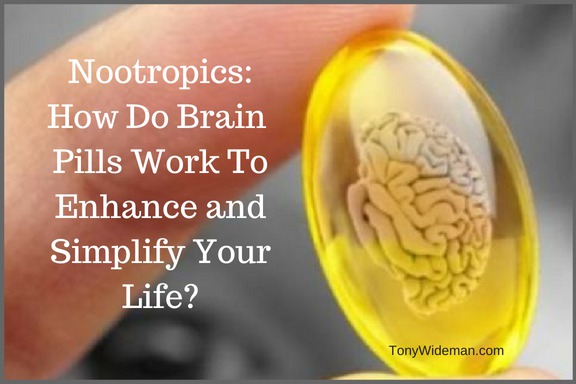
How Do Brain Pills Work . What are brain pills and how do brain pills work? When people speak of brain pills in most cases they are speaking about Nootropic pills. Nootropics have been proven to measurably increase cognitive abilities when used in most people. In almost all cases Nootropics are synthetic chemicals produced in laboratories. They are usually not naturally occurring vitamins or minerals and almost never essential to the body’s normal function. That will be an important distinction as we move forward and learn more. For that reason, It is highly unlikely a person would suffer adverse effects from discontinued use of Nootropics. So, what are brain pills? How do brain boosting pills work? Nootropic drugs are nothing new and have been used for centuries. Cognitive enhancement supplements have been around for a long time and were used as ancient medicine for as long as 5,000 years ago. Caffeine was the most popular of the ancient Nootropic smart drugs and is still commonly used today. Millions of people, including me, still begin their day with a cup of coffee . There is a wide spectrum of Nootropics smart drugs available today that claim to produce a variety of different beneficial effects. Unfortunately, it will require trial and error to find a combination to achieve cognitive enhancements for each individual. Some of the more common uses for Nootropic smart drugs cognitive enhancements include for many hours of studying, for increased mental sharpness, for recovery after a long night of partying and so on . . . How Do Brain Pills Work? There seems to be no consensus on what effects classify a drug as a Nootropic Smart Drug. Almost everyone agrees a Nootropic Smart Drug should possess a few basic characteristics. Most of all they should enhance cognitive […]
Food science: Indian herbs found to have profound protective effects against diabetes and Alzheimer’s

( Natural News ) Alzheimer’s disease and type 2 diabetes have been linked to each other. When a person has diabetes, Alzheimer’s is more likely to occur too – most likely because of the insulin resistance, oxidative stress, and inflammation diabetes causes. Because of this, researchers at Yogi Vemana University in India aimed to develop natural powerful agents for dual therapy of both Alzheimer’s disease and Type 2 disease . For the study, the researchers examined the phytochemical profiles and the effects of three Indian herbal plants Buchanania axillaris , Hemidesmus indicus , and Rhus mysorensis (locally known in India as Sara pappu, Suganda pala, and Sitha Sundari, respectively) on Alzheimer’s disease and type 2 diabetes. Based on their analyses, the researchers found that the methanolic extracts of the three Indian herbal plants demonstrated strong inhibitory activities against acetylcholinesterase (a regulatory enzyme), butyrylcholinesterase (a co-regulator enzyme), alpha-glucosidase, and beta-glucosidase enzymes. These indicated that Buchanania axillaris , Hemidesmus indicus , and Rhus mysorensis have strong antidiabetic properties. The suppression of both acetylcholinesterase and butyrylcholinesterase lead to improvements in memory and cognitive dysfunction; while the inhibition of alpha-glucosidase and beta-glucosidase enzymes slowed down the digestion of carbohydrates, indicating that the Indian herbal extracts are effective for managing carbohydrate metabolic disorders such as type 2 diabetes. In addition, the researchers discovered that the three Indian herbal extracts also have the ability to prevent potential damage caused by reactive oxygen species. Moreover, the extracts exhibited significant cell viability and powerful neuroprotective effects against oxidative stress-induced cell death in neuronal cells. The power of the elements : Discover Colloidal Silver Mouthwash with quality, natural ingredients like Sangre de Drago sap, black walnut hulls, menthol crystals and more. Zero artificial sweeteners, colors or alcohol. Learn more at the Health Ranger Store and help support this […]
Older people who take sleeping pills have double the risk of fracturing their hips

( Natural News ) Getting a good night’s sleep is an important aspect of good overall health and well-being, but what price are you willing to pay for it? For some elderly people, taking sleeping pills means accepting a far higher risk of bone fracture . This is the finding of a new study carried out by researchers from Kings College London and Cardiff University . The researchers examined people aged 65 and older who are given hypnotic medicines like Z drugs and benzodiazepines. They found that medium-term users – those who took the medications for 15 to 30 days – had a 53 percent higher risk of bone fracture than those older people who do not take such drugs. Long-term users, or those who took the drugs for longer than 30 days, had a 20 percent higher risk of hip fracture. These findings, which were published in the journal PLOS One , prompted the researchers to caution doctors to consider this risk when prescribing such medications to elderly patients. They also recommend that those who are given these drugs take actions to reduce the risk of hip fracture, especially during the first few days of usage. These measures might include removing hazards in the home, visual correction, and strength training to improve frailty. The so-called Z drugs include zopiclone, zolpidem, and zaleplon, and they are often given to people who are suffering from insomnia. These drugs are sold under brand names like Ambien, Sonata, and Lunesta and have been associated with confusion and fractures from falls. People with dementia are particularly vulnerable to these side effects. The power of the elements : Discover Colloidal Silver Mouthwash with quality, natural ingredients like Sangre de Drago sap, black walnut hulls, menthol crystals and more. Zero artificial sweeteners, colors or alcohol. […]
Brain Supplements – Do They Really Work?

Everyone dreams of an easy way to improve their brain’s memory, enhance focus, and increase overall intelligence. However, most are skeptical when a new brain supplement enters the market. It just sounds too good to be true, doesn’t it? Maybe, but don’t judge too quickly. There are several brain supplements which exist that are customer tested, regulated, and consumed by people who advocate for their positive effects. What Are Brain Supplements? Brain supplements are a product of neuroengineering, the biomedical process of using engineering techniques to improve the brain’s natural functions. Supplements can be designed to either enhance a healthy brain’s work rate and improve memory, reaction time, and sharpen focus, or can repair existing brain damage. Doctors create supplements to improve mental health, not physical strength. Not many know that we already consume neuroengineered products in our daily lives such as coffee, alcohol, and over the counter drugs. Just as these products are meant to stimulate or alter our minds for a desirable effect, brain supplements are designed to offer a safe enhancement of the brain’s functions. If many of us already have a cup of coffee in the morning, why not explore brain supplement options that might work even better ? What Products Are Available? The most common brain supplements on the market are Nootrpics, also known as smart drugs. These cognitive enhancers increase focus, attention, and memory. Nootropics are intended as a safe, dosage-based remedy for anyone without an over the counter prescription for disorders such as ADHD. As of 2018, scientific research about Nootropics is still premature. One of the highly reviewed Nootropics is NooCube, a product designed to improve overall brain health by combining high quality natural ingredients and amino acids. This product has been used 124,000 people and is special because it does […]
Examining the antidepressant effect of a novel herbal compound made with dried jujube seeds
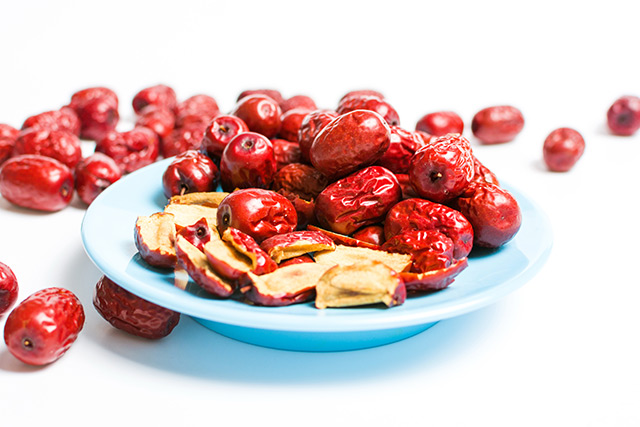
( Natural News ) Researchers have found that a combination of two herbal formulations, the dried seed of the jujube ( Zizyphus jujube ) and the lily bulb, can be used as an alternative treatment for depression. The study, which appeared in BMC Complementary and Alternative Medicine , discussed the effects of a novel herbal compound called ziziphi spinosae lily powder suspension, in terms of its anti-depressant effect based on in vitro and in vivo tests. Treatments for depression are marked by a low success rate, with a high risk of adverse side effects. In the study, researchers examined the potential mechanisms behind the ziziphi spinosae lily powder suspension. For the in vivo study, all characteristics that are found in depression (except for body weight) were measured. This included a forced swimming test, sucrose consumption test, and open field tests. Researchers used ultrahigh-performance liquid chromatography and high-performance liquid chromatography assays to determine the underlying mechanisms of ziziphi spinosae lily powder suspension. From the findings, researchers found that ziziphi spinosae lily powder suspension contains herbal compounds that can improve symptoms of depression, based on a rat model of chronic depression. The compounds also improved serum 5-HT and brain 5-HIAA levels, based on chromatography results. In the rat model, ziziphi spinosae lily powder suspension relieved symptoms of depression and increased serum 5-HT in peripheral blood and 5-HIAA in the brain. The study highlights the potential of herbal compounds to be used to manage chronic depressive disorders, as well as manage major depressive disorders. Learn more about traditional practices to treat depression at ChineseMedicine.news today. Journal Reference: Wang Y, Huang M, Lu X, Wei R, Xu J. ZIZIPHI SPINOSAE LILY POWDER SUSPENSION IN THE TREATMENT OF DEPRESSION-LIKE BEHAVIORS IN RATS. BMC Complementary and Alternative Medicine. 2017;17(238). DOI: 10.1186/s12906-017-1749-5
5G is already linked to rising health problems… concerns about “health calamity” on the rise

( Natural News ) Fifth generation technology for mobile networks, known as 5G, is set to make its big debut in Sacremento, CA this summer — but faster internet speeds aren’t all this new technology is known for. Concerns about the effects of the new cell service are mounting, especially with the growing body of research tying cell phone radiation to cancer and other adverse health outcomes. Outside the lab, firefighters and others exposed to 5G devices say that they are already experiencing negative cognitive effects, including confusion and memory issues. Radiation from cell phones and cell towers has already been linked to brain cancer. With the advent of 5G, there will be more towers that are closer together — a recipe for disaster, according to health advocates. Multiple cell service providers have announced that they will be rolling out 5G for faster speeds, but the impact of the new network is poorly understood at best. More, concerns about what the long-term effects of the near-constant radiation bath provided by 5G networks are continuing to grow — and for good reason. Understanding 5G and cell phone radiation The kind of radiation emitted from cell phones, cell towers and related devices is known as “electromagnetic radiation,” often abbreviated to EMF or EMR. It is also considered to be a type of non-ionizing radiation. While it is not the same radiation you’d fear in a nuclear accident — that doesn’t mean it’s as “risk-free” as industry leaders make it out to be. Currently, cell phones and other devices rely on the 4G network. 5G, or “Fifth Generation” technology promises speeds of up to 100 times faster than the current model. In order to achieve such speed, however, there is a caveat: Thousands of more base stations need to be installed in […]
How to Improve Your Brain With Nootropics?

Modern-day lifestyles have placed increasing demands and almost unrealistic expectations on everybody. People who have succumbed to the pressure and fatigue that an average workday necessitates might be prone to brain fatigue, memory loss, anxiety, depression and stress. Thankfully, there are ways around these that can help your mental health and make you more resilient to intellectual damage. What I’m referring to of course is nootropics . What are Nootropics? As described by the folks at Corpina , nootropics are a branch of science that deals with the betterment of brain health and performance. They have a variety of different uses from making it easier for you to remember to mood upliftment after a hard day at work. Types of Nootropics There are various nootropics out there but they fall under 2 basic categories: Natural – extracted from herbs, leaves, organic oil for a feeling of general wellness. Vitamins and brain foods also come under this category. Nootropic Drugs – created in the lab, targeting specific areas of the brain to address a specific problem. In this case, one category is not better than the other; they each work bests in different contexts. For example, someone who is in need of a quick cognitive burst should take Aniracetam and Noopept, which have a more-immediate effect on the brain. On the other hand, someone looking to improve and maintain their mental capacity over a period of time could opt for the milder and generic effects of natural nootropics. I know that certain people are put-off by the idea of taking synthetic drugs, even when they’re proven to be safe. But let me assure you that for any drug to be called a nootropic, it must be a neuroprotective first. Meaning, it must have minimal occurrence of side effects and have […]
Want better working memory? Nutrition and healthy lifestyle habits play key roles in how much you remember

The way you live your life plays a vital role in how much or how well you remember. A team of researchers in Israel has suggested that adapting a healthier lifestyle can help improve working memory . For the study, which was published in the journal Molecular Psychiatry , the research team recruited 823 participants aged between 22 and 37 years. The participants underwent brain scans during a difficult memory task and accomplished post-scan memory test. The research team also measured the health and lifestyle of the participants. Results from the brain scans revealed the brain regions that mainly engage in working memory tasks. These include the dorsolateral prefrontal cortex, parietal cortex, and anterior cingulate cortex. These brain regions served as a frame of reference to evaluate the relationship between working memory and health and lifestyle. The research team found that there was a strong association between activity in working-memory brain areas and health and lifestyle. After taking into consideration all behavior and health factors, the highest positive correlation occurred with fluid intelligence, reading, spatial orientation, picture vocabulary, several memory tests, and attentiveness, respectively. In addition, these healthy lifestyle habits generally improved brain function of the participants. On the other hand, there was an inverse correlation between specific lifestyle indicators as a large body mass index and various unhealthy lifestyle habits, such as binge drinking and regular smoking. Health factors that correlated negatively with working-memory brain areas included a high body mass index (BMI), high blood pressure, and reduced glucose regulation. (Related: Poor lifestyle habits in middle age cause brain shrinkage and cognitive decline .) Mother Nature’s micronutrient secret : Organic Broccoli Sprout Capsules now available, delivering 280mg of high-density nutrition, including the extraordinary "sulforaphane" and "glucosinolate" nutrients found only in cruciferous healing foods. Every lot laboratory tested. See […]
15 Bizarre Signs That Could Mean You Have a Brain Tumor

The last time you had a headache, you may have had the fleeting prediction that it was a brain tumor causing your pain. Sure enough, your pain probably went away after you made a few lifestyle changes — and the probability of developing a tumor over an everyday headache is low. But still, you should know tumors have more symptoms than just pain behind the eyes or around the temples. In fact, Dr. Theodore Schwartz tells Prevention that the list of tumor symptoms could encompass “almost anything imaginable” depending on where it’s located in the brain. Here are a few strange signs that could mean you’ve developed a brain tumor, including one that’s incredibly easy to overlook (No. 9) . 1. Short-term memory loss An older couple looking at paper work | Janek Skarzynski/AFP/Getty Images Feeling forgetful? It could just be that you’re getting older — but it may also be a sign that you’ve developed a brain tumor. Dr. Schwartz tells Prevention that most people with brain tumors are more likely to have trouble with their memory than they are to have more dramatic symptoms. It’s also important to note that some may also experience more severe, long-term memory loss, the American Brain Tumor Association . If you have a tumor, you may also notice you’re having trouble retrieving older memories. Next: Feeling blue? It could mean something serious. 2. Depression Older woman looking out the window | Dmitry Berkut/iStock/Getty Images We know by now that major depressive disorder is increasingly common and can arise due to various factors. But if you’re experiencing a few of the symptoms on this list and feeling down, it may be a sign you have a brain tumor. ABTA notes depression is very common amongst those with tumors, with an estimated one […]
